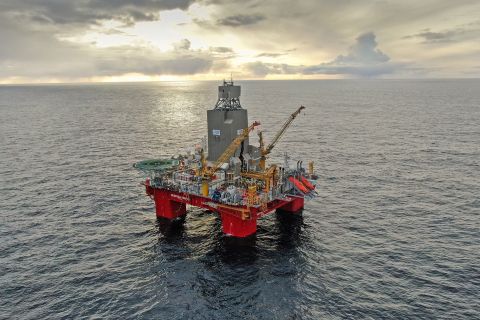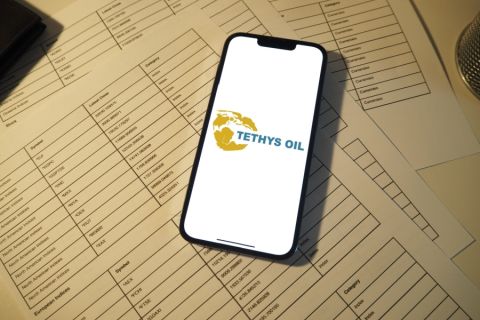TGS has achieved five milestones accelerating the company’s growth strategy, the company said on Sept. 16.
The achievements include new technologies in key basins; strengthening position in the South Atlantic; further growth onshore; enhancing imaging and efficiencies; and expanding the value chain through data and analytics.
- At the SEG conference in San Antonio, TGS will release preliminary imaging results for the Amendment Phase 1 FWI node survey in the U.S. Gulf of Mexico (GoM). This project, which was acquired in partnership with Schlumberger, is the largest deepwater node survey ever delivered in the GoM. The survey was optimized to acquire a minimum of 40 km ultra-long offsets - another industry first for an area of this size.
In Europe, TGS has seen good progress on the Utsira dense OBN survey which is now expected to complete in September. The survey is the first major multi-client OBN project in the region and is being carried out in cooperation with Axxis Geo Solutions.
- TGS commenced its latest survey in the MSGBC basin offshore North-West Africa. The Senegal ultradeep offshore 3-D survey covers over 4,500 sq km, with a modern broadband acquisition system. The project is undertaken in partnership with GeoPartners, using the BGP Prospector. This survey is adjacent to the Jaan 3-D survey. The new survey will illuminate plays in the ultradeep to build upon the success the basin has experienced with SNE, FAN and Yakaar. The project has a 60-day acquisition timeline, with fast-track data available four months after acquisition and the full dataset by August 2020.
- TGS acquires Lasser Inc. to fuel artificial intelligence with historical production data covering onshore U.S. basins. Combined with existing TGS data, such as Analytics Ready LAS (ARLAS) and seismic data attributes, this will provide further insight on industry trends, such as parent-child wells interaction, and shed light on the potential and limitations in today’s unconventional basins.
TGS also announced the same-day delivery of acquired seismic data by successfully utilizing Bluware TELEPORT, a proprietary data compression technology enabling cost-effective transmission of seismic data via low bandwidth satellite links.
- Operating in remote offshore locations, the physical shipment of seismic data from vessels to onshore facilities is an operational bottleneck that increases health, safety and environment exposure and causes delays in data processing.
During a recent test in Argentina, TGS was able to receive and process data to ultra-fast track pre-stack time migration (PSTM) products within 24 hours. The PSTM product allowed for basin definition and a re-orientation of the survey based on geological features observed. It also allowed for more in-depth acquisition quality control and an early identification of the velocity model and parameter selection for processing.
- TGS and Quantico Energy Solutions (Quantico) announce a technology collaboration to leverage their respective offerings in seismic data, AI-based well logs, and AI-based seismic inversion. The joint solution addresses the critical challenges in earth modeling workflows—specifically, insufficient seismic and log data, lengthy time until results, and difficulties mapping advanced geo-mechanical and petrophysical attributes.
TGS will leverage its industry-leading data library of seismic and well log data in the key regions of oil and gas activity across the world. In addition, the collaboration will feature TGS’ ARLAS solution. By integrating Quantico’s QRes technology with TGS’ data library and ARLAS solution, oil companies will have turnkey access to the most comprehensive geoscience data and technologically advanced AI solutions to deliver maximum production with faster cycle times.
“We are excited by the recent achievements to continue our growth. These strategic milestones further enhance TGS’ position as the leading provider of subsurface intelligence, providing our clients and the industry with the quality data they need to make the best possible decisions for their investments,” Kristian Johansen, CEO, TGS said.
Recommended Reading
Vår Energi Hits Oil with Ringhorne North
2024-04-17 - Vår Energi’s North Sea discovery de-risks drilling prospects in the area and could be tied back to Balder area infrastructure.
Tethys Oil Releases March Production Results
2024-04-17 - Tethys Oil said the official selling price of its Oman Export Blend oil was $78.75/bbl.
Exxon Mobil Guyana Awards Two Contracts for its Whiptail Project
2024-04-16 - Exxon Mobil Guyana awarded Strohm and TechnipFMC with contracts for its Whiptail Project located offshore in Guyana’s Stabroek Block.
Deepwater Roundup 2024: Offshore Europe, Middle East
2024-04-16 - Part three of Hart Energy’s 2024 Deepwater Roundup takes a look at Europe and the Middle East. Aphrodite, Cyprus’ first offshore project looks to come online in 2027 and Phase 2 of TPAO-operated Sakarya Field looks to come onstream the following year.
E&P Highlights: April 15, 2024
2024-04-15 - Here’s a roundup of the latest E&P headlines, including an ultra-deepwater discovery and new contract awards.





